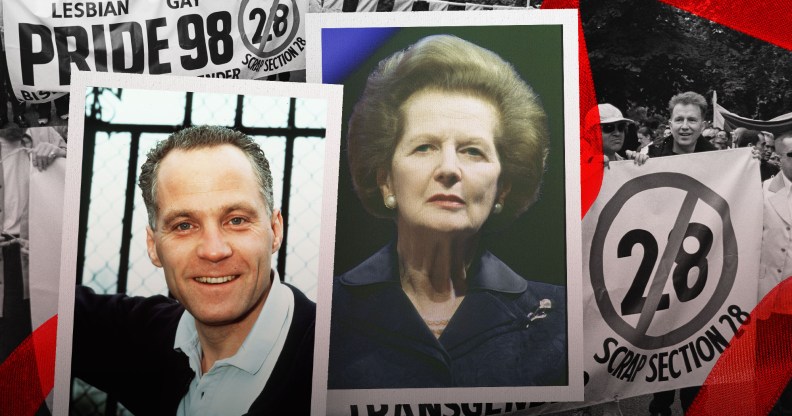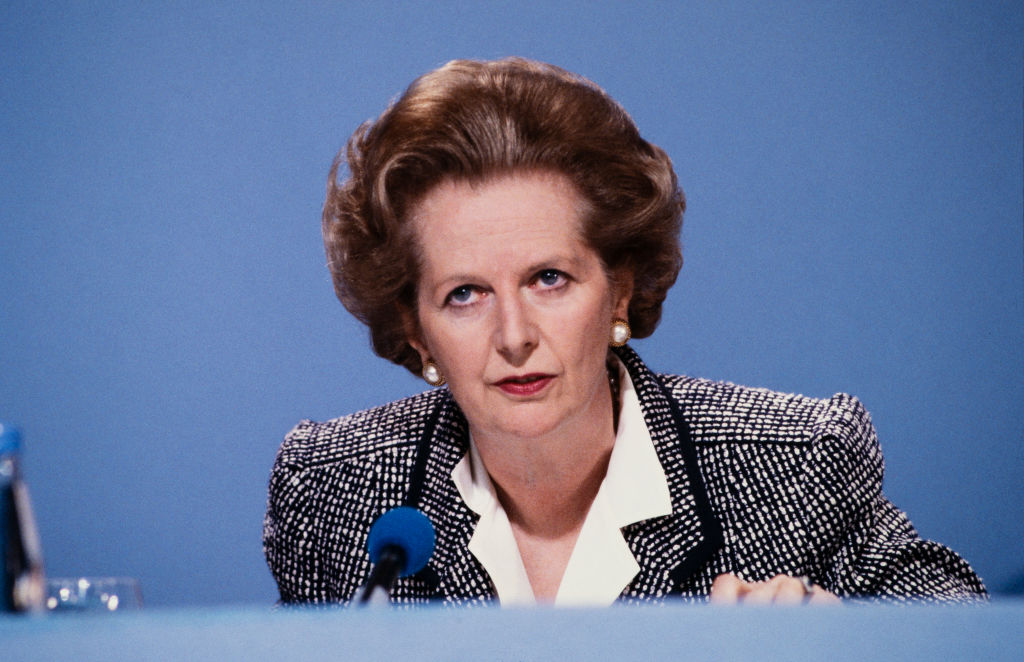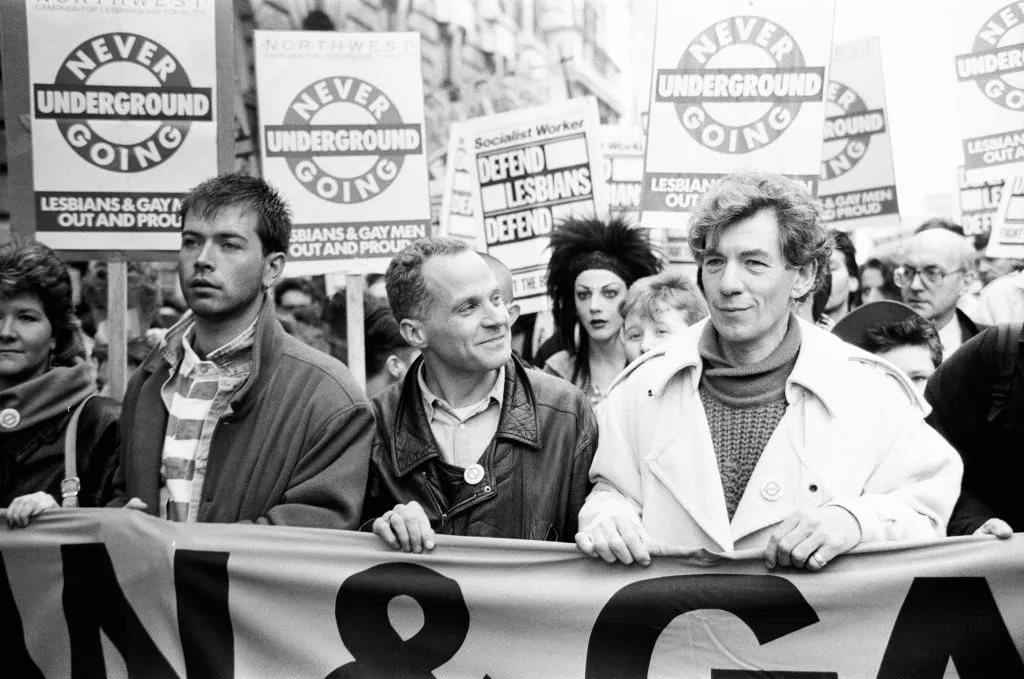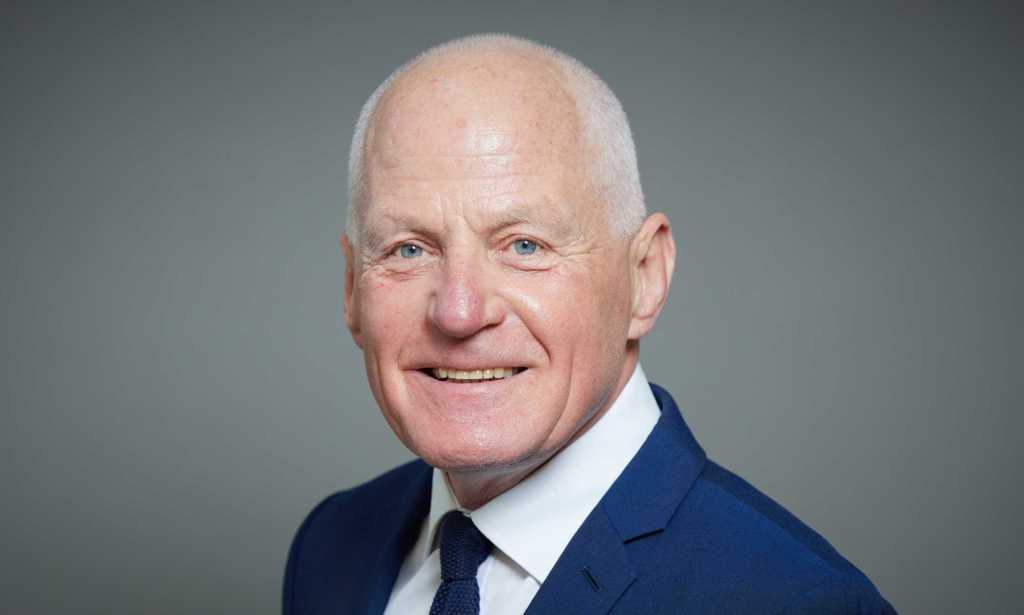How Section 28 lit a fire under Britain’s LGBTQ+ rights movement

Michael Cashman (L) was part of the fight against Section 28, the anti-LGBTQ+ legislation enacted by Margaret Thatcher’s (R) government. (Getty)
In 1988, Section 28 banned what the Tories called the promotion of homosexuality by schools and local authorities. Subsequently, generations of young LGBTQ+ people were cheated out of the dignity of seeing themselves reflected positively.
The 20 years preceding Section 28 had seemed to point to progress for the LGBTQ+ community. The Sexual Offences Act in 1967 partially decriminalised homosexuality, and the Pride movement sprang into action after the Stonewall Riots in 1969, leading to the UK’s first Pride march in 1972.
However, 1980s Britain saw enormous political, social and economic changes under Conservative prime minister Margaret Thatcher.
The onset of the HIV/AIDS crisis fuelled homophobia, with inaccurate news articles deliberately using emotive and incendiary language to cause hysteria. The mood of the general public was very much against homosexuality, with almost 75 per cent of people viewing it as wrong.
This, along with a second event, intensified pre-existing opposition to LGBTQ-inclusive issues being taught in schools.

In 1983, the Daily Mail reported that a copy of a book entitled Jenny Lives With Eric and Martin, about a little girl who lives with her father and his gay partner, was stocked by a school library run by the Labour-controlled Inner London Education Authority.
Fears that significant public resources were being used to support homosexuality led to prominent public criticism. In September 1986, the book was discovered in a library, leading to widespread protests and demonstrations, and, ultimately, to Section 28.
Contrary to public belief, the legislation was not actually the brainchild of Thatcher herself. Rather, the idea originated in an amendment tabled by two members of the House of Lords, Flora Fraser (the 21st Lady Saltoun) and Lord Campbell of Alloway.
Having won a landslide general election victory in June 1987, Thatcher felt empowered to use that year’s Conservative Party Conference to attack the policies of left-wing local authorities that promoted positive images of homosexuality.
In a speech written by her minister and former party chairman, John Selwyn Gummer, she stated: “Children who need to be taught to respect traditional moral values are being taught that they have an inalienable right to be gay. All of those children are being cheated of a sound start in life – yes, cheated.”
These words prompted backbench Tory MPs, including David Wilshire and Jill Knight (later Baroness Knight of Collingtree) to attempt to ban the so-called promotion of homosexuality.
In December 1987, Wilshire introduced an amendment in the House of Commons to The Local Government Bill, by which local authorities could not “intentionally promote homosexuality” or “promote the teaching in any maintained school of the acceptability of homosexuality as a pretended family relationship”.
In March 1988, Section 28 (sometimes referred to as Clause 28) was passed in the House of Commons and became Section 2A of the Local Government Act. It came into force on 24 May, 1988, and was the first explicitly anti-gay legislation passed in the United Kingdom for more than a century.
Years later, Baroness Knight sought to explain her involvement in the implementation of the hated legislation. In 1999, she said: “I was contacted by parents who strongly objected to their children at school being encouraged into homosexuality and being taught that a normal family with mummy and daddy was outdated.” Then, in 2018, she told BBC’s Newsnight: “The intention was the wellbeing of children. And if I got that wrong, well, I’m sorry… and nobody told me at that time.”
That seems unlikely. Indeed, even a cursory inspection of Hansard (the official report of parliamentary debates) suggests that there were MPs at the time who were vehemently opposed to the legislation. For example, Labour’s Tony Benn, argued: “If the sense of the word ‘promote’ can be read across from ‘describe’, every murder play promotes murder.”
Due to the ambiguity surrounding the meaning of “promotion”, teachers and schools adopted a restrictive approach.
Section 28 had an enormous impact both inside and outside schools. According to helplines, there was a threefold increase in LGBTQ+ harassment. Very quickly, constraints were also put on councils who then stopped funding books, films, leaflets, plays and other materials depicting same-sex relationships. It was, undeniably, a huge step back for queer rights.
Section 28 spurred LGBTQ+ community into action
But there were some positives during this period. It is one of history’s great ironies that Section 28 galvanised the disparate sections of the British LGBTQ+ community into more direct and concerted action.
Lord Michael Cashman was an actor in EastEnders at the time – his character, Colin Russell, was the first gay man in the soap’s history. In 1989, he co-founded Stonewall – now Europe’s largest LGBTQ+ rights charity – with Ian McKellen and Lisa Power. He went on to become a Labour MEP, and then a peer.
“I never set out to be an activist,” Cashman said. “In fact, had it not been for Section 28, I would not have become an activist. But because I played a gay man on EastEnders, and because of the AIDS crisis, I assumed the role.”

Protests against Section 28 continued for the ensuing decade, while Stonewall and other LGBTQ+ groups lobbied political parties across the spectrum. This coincided with societal changes in attitudes towards homosexuality.
Greater visibility of LGBTQ+ people on television helped to change public perceptions. In January 1989, EastEnders showed the first mouth-to-mouth, same-sex kiss between Colin and his boyfriend Guido (Nicholas Donovan). Two years earlier, Colin had given his then-boyfriend Barry (Garry Halies) a peck on the forehead.
This was followed in 1994 by the first lesbian kiss on Brookside, and in 1998 by Coronation Street introducing its first trans character.
On the changing attitudes of the general public, Lord Cashman reflected: “People thought: ‘is the government honestly promulgating the view that you can promote homosexuality? Are we seriously saying that heterosexuality is so fragile that someone will gallop into getting a sex change, or someone becoming a lesbian or gay man?’
“People also recognised that, while Section 28 was exclusively targeting gay men and lesbians, potentially it could be a slippery slope towards other forms of censorship.
“Looking back, if we had won the battle of Section 28, Stonewall would probably never have been founded,” Lord Cashman suggested. “I don’t think we would have progressed to equality as far as we have now. The fact that we lost meant we had to make sure another Section 28 didn’t happen.

“Ironically, Margaret Thatcher created the conditions for equality. Was Section 28 a good thing then? Absolutely not. It caused so much fear, stigma and confusion.”
Section 28 was repealed on 21 June, 2001, in Scotland, and on 18 November, 2003, it was taken off the statute books across the rest of the UK. Other legislative reforms have since afforded LGBTQ+ people a number of protections.
The Civil Partnership Act 2004 legally recognised gay and lesbian partnerships. This was followed by the Equality Act 2010 which afforded people protection against discrimination, and the Marriage Act 2013 (2020 in Northern Ireland) which gave same-sex couples the same rights as straight married couples.
Despite this meaningful progress, the legacy of Section 28 lives on
In January 2023, it was announced that prime minister Rishi Sunak had blocked the Scottish National Party’s recently passed Gender Recognition Reform Bill from gaining Royal Assent by issuing a Section 35 order – the first time it has been used since the opening of the Scottish parliament in 1999.
This order allows the UK government to block devolved legislation if it would modify laws reserved for Westminster and have an “adverse effect” on the application of those laws.
While the Conservatives claim reforms – which would introduce a system of self-declaration, or self-ID, for trans people – would impact the Equality Act, the SNP refute this.
Lord Cashman sees striking similarities between 1988 and today. “The arguments against self-ID are exactly the same as those used to enforce Section 28, i.e. protecting children, protecting family life, protecting others,” he said.
It is often said that eternal vigilance is the price of liberty. Lord Cashman shares these sentiments.
“We must never be complacent,” he said. “It is only by standing together as a diverse community that we can ensure change for those for whom equality is not yet won and protect the rights and freedoms we have already fought so hard for.”
Karl Marx considered that “History repeats itself, first as tragedy and second as farce.” Section 28 was a tragic stain on our British political history, but by choosing kindness, empathy and thinking rationally we can hopefully avoid making a mockery out of the needs of the trans community. This February, and beyond, let us remember the “T” in “history” and “equality”.
Jacqui Rhule-Dagher is a lawyer at an international law firm and a member of the Law Society’s LGBT+ Solicitors Network Steering Committee.
How did this story make you feel?

